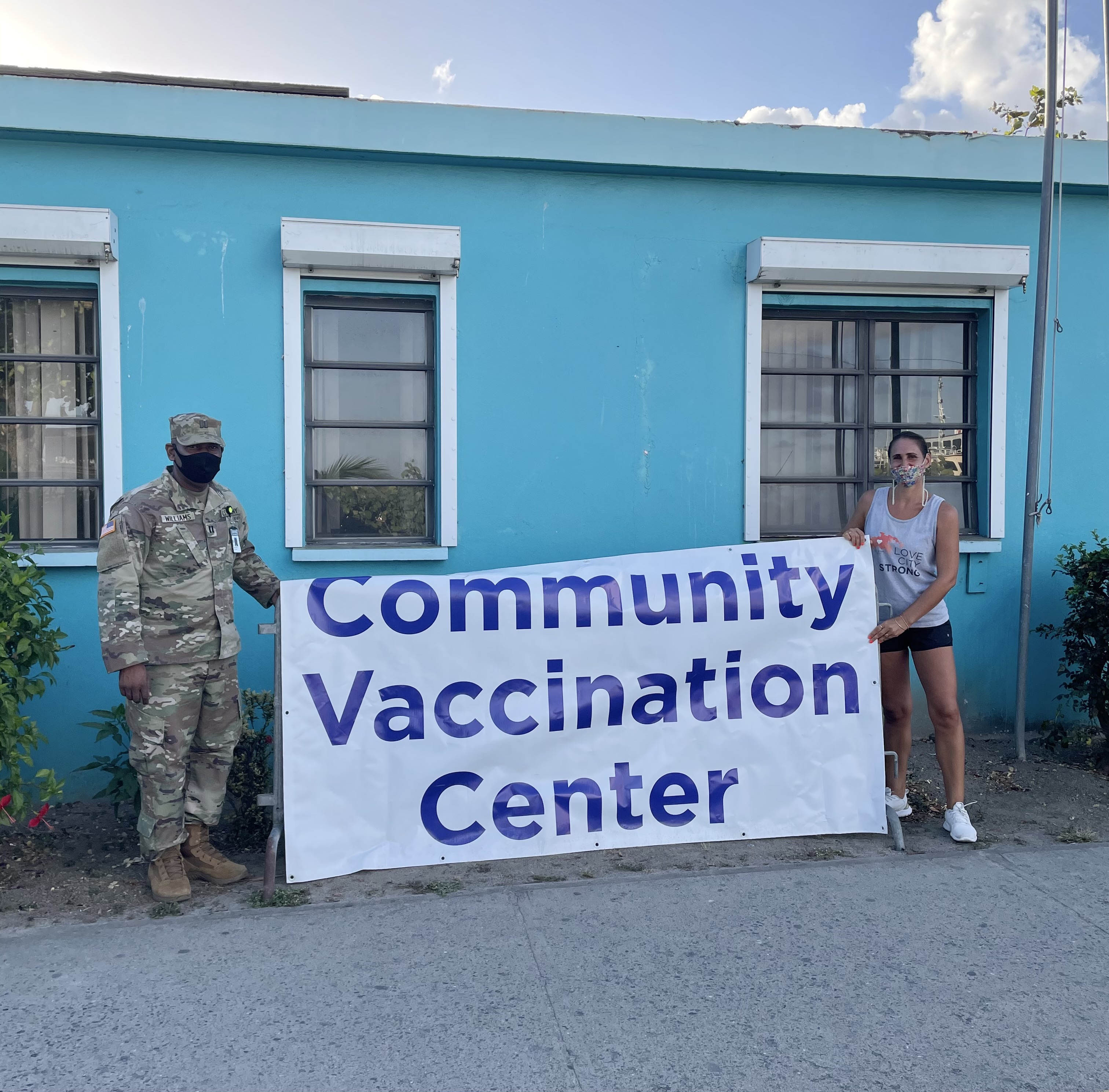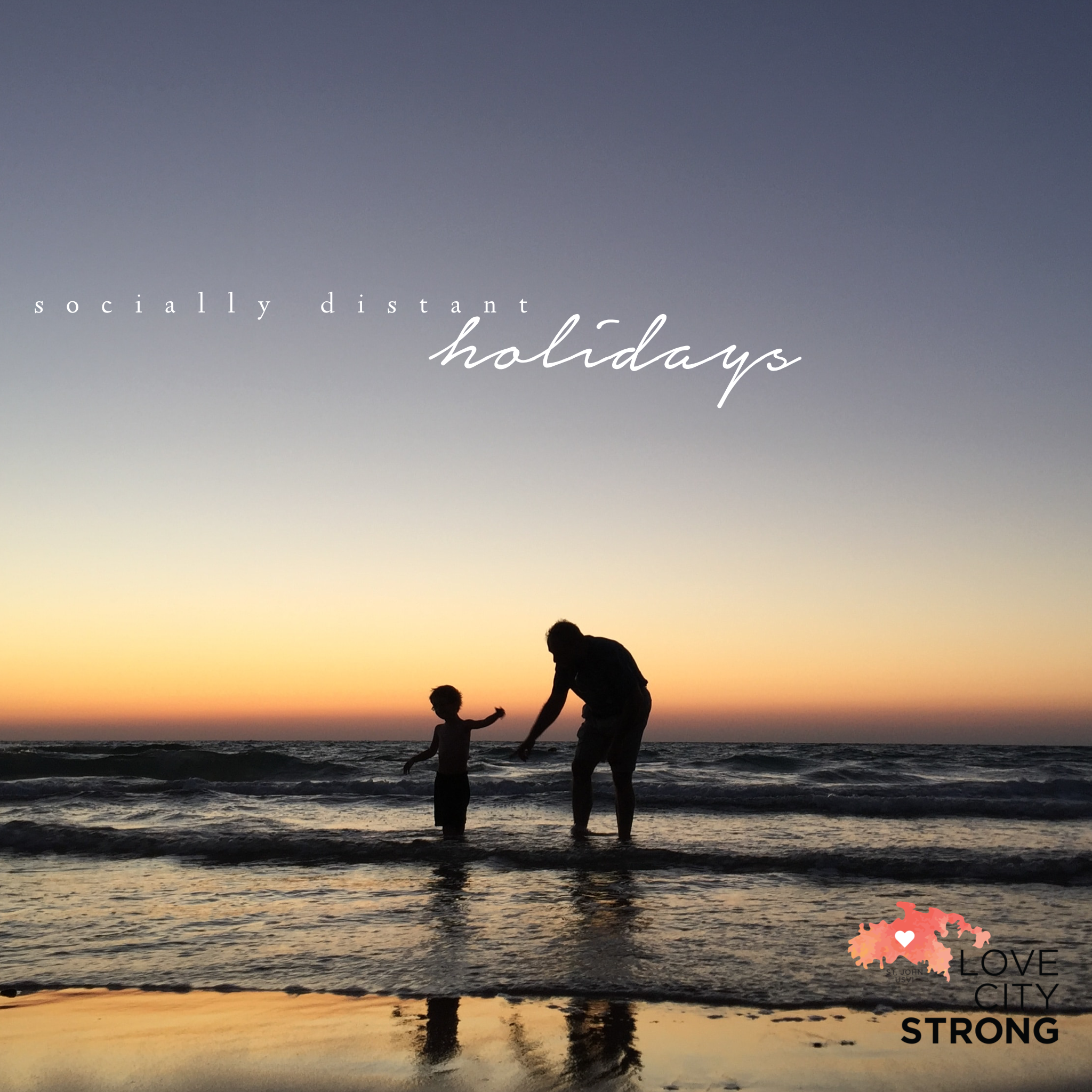
As the COVID-19 pandemic has progressed, we have made every effort to meet the moment in terms of our response to the ever-changing circumstances. Our team’s connection to the community, along with forward thinking to potential hazards and challenges, has allowed us to respond quickly and efficiently throughout this crisis. To that end, as 2020 drew to a close we began preparing ourselves to assist the Territory with COVID-19 vaccination efforts on St. John.
In November, we began reaching out to contacts in the healthcare field to get a better understanding of the COVID-19 vaccines that were being developed. Through short training sessions we were able to educate ourselves about the vaccines, and about vaccinations in general. We purchased additional PPE and secured donations from Good 360 to help the healthcare community prepare for the inevitable surge in PPE use that would result from any sort of mass-vaccination effort in the Territory.
In January 2021, we developed messaging and content related to the vaccines across a variety of channels. We wanted to ensure that we could start debunking myths, providing facts, and answering questions about the vaccines as soon as possible to increase vaccine confidence in the St. John community.
In February our team was vaccinated by the Island Health and Wellness Center, with our employees who are seniors or licensed emergency first receiving their doses first. We then began the process of collecting data from individuals across the island to help shape our outreach efforts. We spoke to over 500 St. John residents and asked them questions about whether they had received or planned on receiving the vaccine, along with additional demographic questions. Using this data we crafted specific messaging to reach certain segments of the community via phone calls and home visits to help answer questions and provide information from the VI Department of Health.
In March, we were asked to assist in the mass-vaccination efforts on St. John. For the last five weeks we have partnered with the VI Department of Health, VITEMA, the Virgin Islands National Guard, the CDC, and the United States Department of Defense in running vaccination pop up clinics in Cruz Bay every Saturday. Our supplies, manpower, and knowledge of the community have been utilized to make vaccination efforts on St. John more robust.
We have provided tables, chairs, PPE, and bottled water for staff and patients at every pop up. Our Go Team has done extensive outreach directly to residents’ homes to sign them up for future appointments, and picked up seniors and individuals with limited mobility to bring them to their appointments. We have also provided Spanish speaking translators and logistical assistance to the pop ups as needed.
The trust of our donors has given us access to a significant amount of unrestricted funds, enabling us to meet immediate needs. Unrestricted funding is extremely important to the work that we do so that we do not have to hesitate to respond when an emergency happens. To support our vaccination efforts, and our efforts to prepare for the future, click here.
To learn more about the COVID-19 vaccine, visit the VI Department of Health’s resource page; the CDC’s Vaccine FAQ page, and the Johns Hopkins guide for fully vaccinated individuals. You can also check out our vaccine Q&A with Sandy Colasacco, a Board Certified Family Nurse Practitioner and the Clinical Executive Director of Island Health and Wellness.

This week, our team partnered with the Virgin Islands Fire Department and Our Lady of Mt. Carmel Catholic Church to help distribute boxes of food to St. John residents as part of the USDA’s Farmers to Families program.
While this is the fourth time that boxes of food have been given out on St. John, the current distribution model relies on those in need going to distribution sites.
Our team’s inclusion in this round of distribution ensured that a crucial group of individuals was able to receive this program’s benefits: Seniors and people with a disability or chronic health condition that renders them homebound. We delivered boxes of food directly to 80 homes across the island in a single day.
Our longstanding model of going directly to those we serve for all of our programs, rather than making them come to us, means that we are uniquely able to navigate St. John quickly and efficiently. This allows us to provide people with goods and services from other organizations who might otherwise not be able to access them.
Thanks to the support of our Board and donors, we are able to provide vehicles for our employees to participate in programs like this. Providing our team with vehicles, PPE, and the tools that they need to do their jobs ensures that they do not have to use their personal property for work purposes. This lends itself to our belief in a strong work-life balance, and strengthens our impact.
Your donations ensure that we can continue to support other organizations’ efforts when we are not working on our own programs. Click here to read more about what we do, and please consider a donation today. With your help, we can keep supporting our community whenever we are able.

Almost a year into the COVID-19 pandemic, it’s understandable that many are starting to develop a sense of emotional burnout that some are calling “covid fatigue.”
The sense of a never ending struggle against an invisible threat may cause people to let their guard down. After all, it can feel wrong to continue to rearrange your life and practice all of these new habits if your risk seems nonexistent. However, this behavior is precisely what leads to surges in COVID-19 cases.
As cases begin to increase globally, particularly in the United States, anecdotal evidence suggests that “covid fatigue” is playing a major part. People are tired of not seeing their loved ones, and staying socially distant, and making dramatic shifts in how they interact with the world.
What’s troubling is that this societal shift is about to converge with the holiday season; a time when people around the world come together with loved ones and celebrate long standing traditions with their communities. These celebrations usually occur indoors, in large groups, and almost always involve older members of one’s extended family or community.
Given that most of us have not seen our loved ones this year due to the pandemic, it can be tempting to completely relax our habits for the holidays and to act as though we live in a world free of risk. The sense of comfort and nostalgia that the holidays give us seem like the perfect solution to our pandemic woes. Unfortunately, the traditions that many of us crave are exactly the kinds of scenarios that put us and others at risk.
It is more important than ever that we begin to workshop creative solutions and start new traditions in order to celebrate the holidays during the pandemic. Whether gathering in smaller groups with immediate members of your household only, taking more time off of work or school to allow for adequate quarantine on either side of holiday travel, or making celebrations entirely virtual, any amount of mitigation will be better than none.
Here are a few key questions to consider when making holiday plans this year:
- What risk are you placing on others (particularly seniors or those who are immunocompromised) with the celebrations that you are planning?
- How can you modify your normal plans to allow for social distancing, or even to have events outdoors rather than indoors?
- For those traveling, what is the status of the virus in your community, and the community that you’re traveling to? Is it fair to put a strain on another community’s healthcare system, or put loved ones in another community at risk, for the sake of not celebrating the holidays in your own community?
- Do you have the resources and time to get tested and self-isolate before celebrating the holidays with people you do not live with?
- Should you set boundaries and expectations with others (and avoid those awkward conversations about why you won’t be hugging anyone this year) ahead of time?
